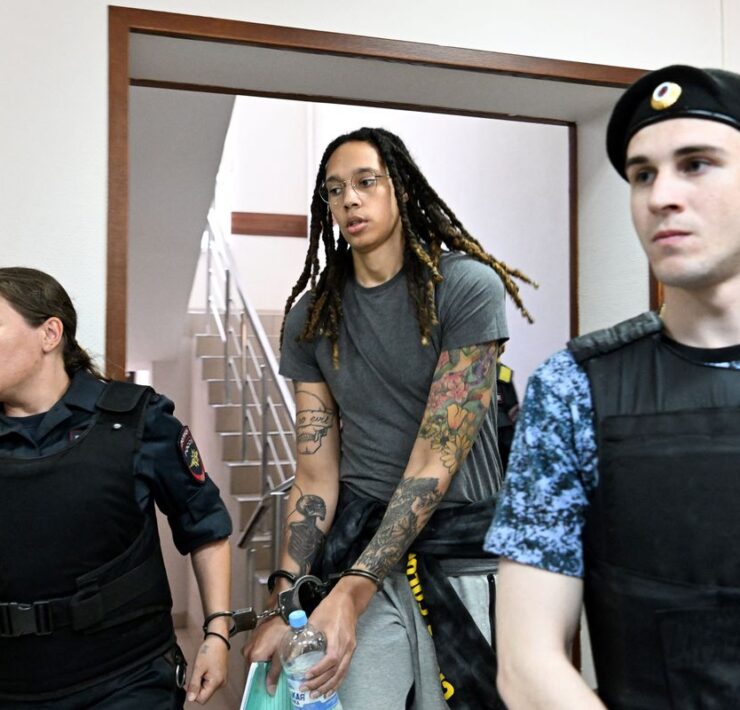Where Do LGBTQ People Stand If Russia Takes Full Control of Ukraine?

Elisa Lobatos-Briones (she/her) is a student journalist and an English-Spanish…
A day that will stay in the world’s history, February 24, 2022: the day that Russia invaded Ukraine.
Russia launched a deadly attack on the country of Ukraine by air, land, and sea on Thursday morning. For many months, President Vladimir Putin denied he would invade his neighbor, but all of a sudden, he dissolved the peace deal and sent forces across the north, south, and east borders or Ukraine.
Russian troops moved into different Ukraine’s large cities after Putin ordered the invasion. Airports and military headquarters were hit first, then tanks and troops rolled into Ukraine.
Putin said that he was not planning on invading Ukraine, but in late 2021, Russia began deploying a larger numbers of troops close to Ukraine’s borders. The attacks on Ukraine were something that many saw coming sooner or later.
LGBTQ people in the recently invaded country fear human rights abuses if Russia takes full control of the country in the near future.
Last week, the U.S. sent a letter to the United Nations warning that Russia has created a “kill list” of Ukrainians to be attacked or detained if they were to invade the country; this list includes journalists, activists, ethnic and religious minorities, and LGBTQ Ukrainians.
Iulia, an 18-year-old law student, tells CBS News, “That would mean a direct threat to me and especially, well, to me and the person I love,” assuming that Russia takes control of Ukraine. “In Russia, LGBTQ people are persecuted; if we imagine that Russia occupies all of the Ukraine or just a big part of the country, they won’t allow us to exist peacefully and to fight for our rights as we are able to do that in Ukraine right now.”
Iulia is training to be a lawyer in Kharkiv—one of the cities that Russia first targeted. She wants to use her degree to fight for LGBTQ rights in Ukraine and says that the country was making progress in terms of acceptance of LGBTQ people.
“We still have a lot of things to do about our rights and our freedoms, but in Ukraine, you can fully express yourself,” she says. “It’s much more safer than in Russia, believe me. It’s much easier.”
Although Ukraine doesn’t allow same-gender marriage either, she believes the country is only a few years away from allowing it.
Even though the country still doesn’t allow same-gender marriage, it is slowly making progress, but for Russia, everything looks very different and much more difficult for the LGBTQ people.
In 2012, the Moscow city government ordered that Pride parades be banned for the next 100 years, and in 2013, the parliament unanimously passed a law forbidding “propaganda on nontraditional sexual relationships” among minors.
Iluia says that, despite the Russian threat, she is hopeful about the future for Ukraine and the LGBTQ community.
“When this whole story is finished, and when Russia is done with terrorizing us, I think that we will soon legalize same-sex marriage. I think it must be about to happen,” she says. “And yes, I think that I will have a very, very good comfortable future living in Ukraine as an LGBTQ person.”
It’s still uncertain what would happen next in Ukraine, but many people are in danger, especially the ones on the “killing list,” including LGBTQ people. This war is unnecessary, and innocent people are paying the price.
What's Your Reaction?
Elisa Lobatos-Briones (she/her) is a student journalist and an English-Spanish translator. She is the editorial intern for OFM and also writes for The Metropolitan newspaper.










